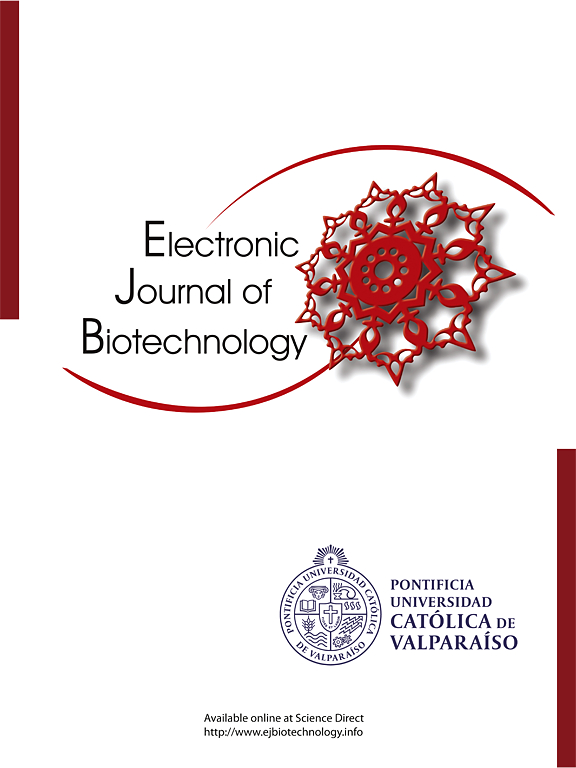Effect of flaxseed’s supplement on AMPKα2′s expression in non-diabetic and diabetic patients having follicular thyroid carcinoma on mitochondrial’s ATP synthase for TPC-1 cell line
IF 2.5
4区 生物学
Q3 BIOTECHNOLOGY & APPLIED MICROBIOLOGY
引用次数: 0
Abstract
Background
This study examined the effects of flaxseed oil supplementation on the expression of adenosine monophosphate-activated protein kinase alpha2 (AMPKα2) in male patients with follicular thyroid cancer. The objective was to assess whether flaxseed oil could enhance AMPKα2 activity, improve histological features, and reduce tumor cell viability, offering a potential therapeutic benefit for diabetic and non-diabetic patients.
Results
A total of 303 patients, including 149 non-diabetic and 154 diabetic participants, received 1250 mg of flaxseed oil daily for one month. Flaxseed oil supplementation significantly improved tumor histology, with treated tissues showing organized follicular patterns and reduced fibrovascular cells compared to untreated tissues. Cell viability assays demonstrated a dose-dependent reduction in papillary thyroid carcinoma cell viability, with the strongest effects observed at flaxseed extract concentrations of 80, 50, and 30 µg/mL. Molecular analyses revealed increased AMPKα2 expression in both treated thyroid cancer tissues and cell line models, indicating enhanced protein activation. These findings suggest that flaxseed oil supplementation may inhibit tumor proliferation and improve histological organization in follicular thyroid cancer.
Conclusions
Flaxseed oil supplementation activates AMPKα2, reduces tumor cell viability, and improves histopathological features in follicular thyroid cancer tissues. These results highlight the potential of flaxseed oil as an adjunctive therapy to enhance cancer management strategies, particularly in diabetic and non-diabetic patients with follicular thyroid cancer.
How to cite: Alsakran A, Aldahish A, Alotaibi A, et al. Effect of flaxseed’s supplement on AMPKα2’s expression in non-diabetic and diabetic patients having follicular thyroid carcinoma on mitochondrial’s ATP synthase for TPC-1 cell line. Electron J Biotechnol 2025;76. https://doi.org/10.1016/j.ejbt.2025.03.006.

亚麻籽对非糖尿病和糖尿病滤泡性甲状腺癌患者线粒体ATP合酶表达的影响
本研究探讨了补充亚麻籽油对男性滤泡性甲状腺癌患者单磷酸腺苷活化蛋白激酶α2 (AMPKα2)表达的影响。目的是评估亚麻籽油是否可以增强AMPKα2活性,改善组织学特征,降低肿瘤细胞活力,为糖尿病和非糖尿病患者提供潜在的治疗益处。结果共303例患者,其中非糖尿病患者149例,糖尿病患者154例,每天服用1250 mg亚麻籽油,持续1个月。亚麻籽油的补充显著改善了肿瘤组织学,与未治疗的组织相比,治疗后的组织显示出有组织的滤泡模式和减少的纤维血管细胞。细胞活力测定显示,剂量依赖性地降低甲状腺乳头状癌细胞活力,在亚麻籽提取物浓度为80、50和30µg/mL时观察到最强的影响。分子分析显示,AMPKα2在治疗后的甲状腺癌组织和细胞系模型中表达增加,表明蛋白活化增强。提示补充亚麻籽油可抑制滤泡性甲状腺癌的肿瘤增殖,改善肿瘤组织结构。结论补充亚麻籽油可激活AMPKα2,降低肿瘤细胞活力,改善滤泡性甲状腺癌组织病理学特征。这些结果强调了亚麻籽油作为一种辅助治疗的潜力,以加强癌症管理策略,特别是在糖尿病和非糖尿病患者滤泡性甲状腺癌。如何引用:Alsakran A, Aldahish A, Alotaibi A等。亚麻籽对非糖尿病和糖尿病滤泡性甲状腺癌患者线粒体ATP合酶表达的影响。中国生物医学工程学报(英文版);2009;16。https://doi.org/10.1016/j.ejbt.2025.03.006。
本文章由计算机程序翻译,如有差异,请以英文原文为准。
求助全文
约1分钟内获得全文
求助全文
来源期刊

Electronic Journal of Biotechnology
工程技术-生物工程与应用微生物
CiteScore
5.60
自引率
0.00%
发文量
50
审稿时长
2 months
期刊介绍:
Electronic Journal of Biotechnology is an international scientific electronic journal, which publishes papers from all areas related to Biotechnology. It covers from molecular biology and the chemistry of biological processes to aquatic and earth environmental aspects, computational applications, policy and ethical issues directly related to Biotechnology.
The journal provides an effective way to publish research and review articles and short communications, video material, animation sequences and 3D are also accepted to support and enhance articles. The articles will be examined by a scientific committee and anonymous evaluators and published every two months in HTML and PDF formats (January 15th , March 15th, May 15th, July 15th, September 15th, November 15th).
The following areas are covered in the Journal:
• Animal Biotechnology
• Biofilms
• Bioinformatics
• Biomedicine
• Biopolicies of International Cooperation
• Biosafety
• Biotechnology Industry
• Biotechnology of Human Disorders
• Chemical Engineering
• Environmental Biotechnology
• Food Biotechnology
• Marine Biotechnology
• Microbial Biotechnology
• Molecular Biology and Genetics
•Nanobiotechnology
• Omics
• Plant Biotechnology
• Process Biotechnology
• Process Chemistry and Technology
• Tissue Engineering
 求助内容:
求助内容: 应助结果提醒方式:
应助结果提醒方式:


